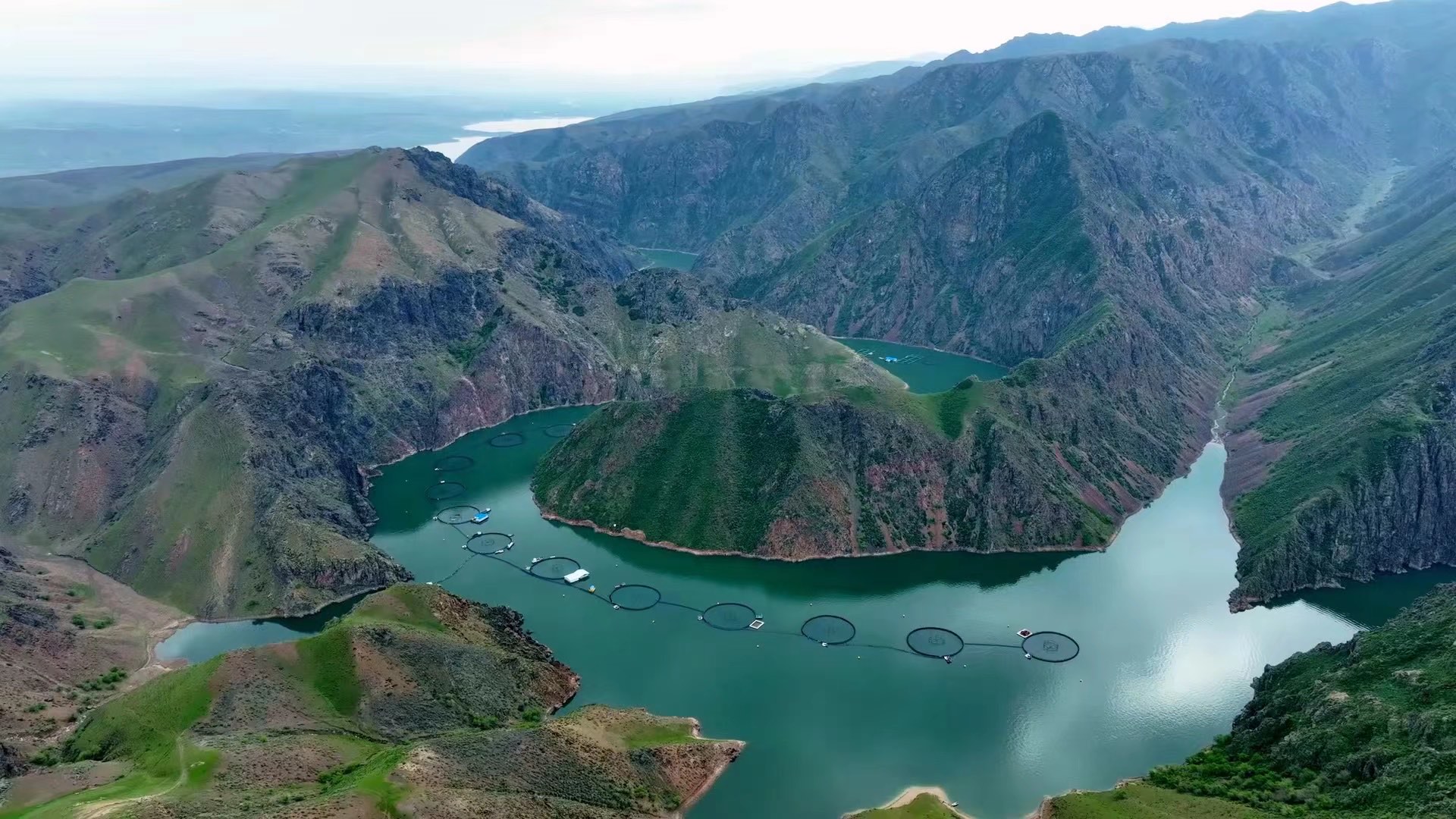Rich Aquatic Products on Dining Tables in Xinjiang

Rainbow trouts are raised in a reservoir in Xinjiang's Nilka county. (COURTESY PHOTO)
By?ZHONG?Jianli?&?WEI?Yichen
When you think of Xinjiang Uygur autonomous region, the farthest inland region in northwest China, which foods typically come to mind? Lamb and sweet fruit, perhaps? However, now salmon, shrimp and crab may catch your attention.
Seafood has not only become a delicacy on dining tables in Xinjiang homes, but also across the nation and even around the globe.
But just how is it possible to cultivate seafood in landlocked Xinjiang?
On one hand, the salinized land in many parts of Xinjiang and the region's natural lakes provide a sound environment for producing aquatic products.
Hongqi Farm is located in the eastern part of Pamir Plateau. Due to the low-lying terrain, its groundwater level is relatively high, and the water contains a large amount of salt and alkali.
Taking advantage of the saline-alkali water resources, local people have blended the water and simulated the marine environment, which is suitable for the breeding of shrimps and other seafood.
On the other hand, the cold, clear freshwater from melting glaciers in Xinjiang makes it conducive to cultivating fish.
Nilka county, located in the upper reaches of Ili River whose source is from melting snow on Tianshan Mountain, offers a unique ecological environment for raising the rainbow trout, a species of the salmonidae family.
The water temperature in reservoirs is maintained at 8℃ to 13℃ all year round, while the water flow is slow, and very suitable for cold water fish breeding.
"We have pioneered a semi-closed recirculating aquaculture system to raise cold water fish," according to a spokesperson of Xinjiang Tianyun Organic Agriculture Company, adding that the system helps solve the problem of higher temperature in summer which curbs the appetite of fish, and with this system, the growth period of fish is shortened from 36 months to 26 months.
"Our company can breed eight million trout fry every year, and the annual production of high-quality trout is about 12,000 tons. We have built a whole industrial chain integrating research and development, fry breeding, intelligent farming, intensive processing and sales," said Wang Yuan, assistant to chairman of Tianyun, adding that the company has obtained the Best Aquaculture Practices (BAP) certification by Global Aquaculture Alliance.
Relying on the advanced processing equipment, the rainbow trout can be processed, packaged and transported to market within 24 hours. Some products are exported to Russia, Malaysia and other countries.
The aquatic food business has also brought benefits to local people. According to official data, the total output value of Xinjiang's fishery industry reached 4.2 billion RMB in 2022, an increase of 921 million RMB over 2019. The per capita net income of fishermen in Xinjiang is 19,960 RMB, 3,410 RMB higher than the per capita disposable income of rural residents.







